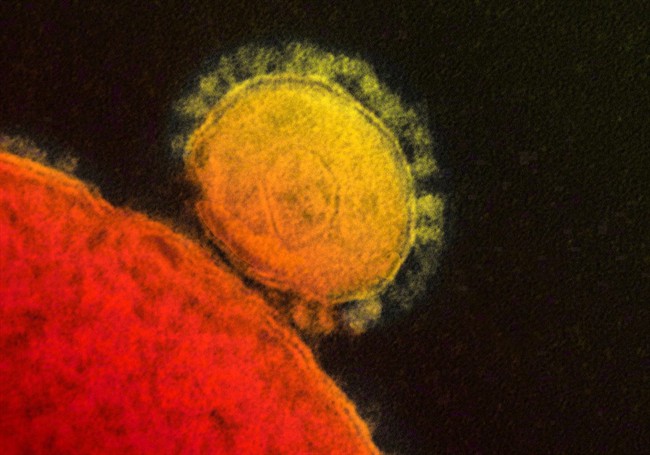A man, his pregnant wife and their eight-year-old son have tested positive for MERS in the United Arab Emirates, the World Health Organization announced Monday.

The woman, who was eight months pregnant when she contracted the virus, gave birth by emergency C-section to a healthy baby boy. But later Monday, the National, an English-language newspaper in Abu Dhabi, reported that the woman had succumbed to her illness.
This is the first known case of a pregnant woman contracting MERS.
READ MORE: 2 new diseases – H7N9 and coronavirus – could both spark global outbreaks
The man remains in critical condition in hospital. The older son had a milder illness; he was only spotted as a MERS patient when health officials screened the relatives of the couple for additional cases. The boy is reportedly being kept in isolation.
The latest cases are members of a large extended family from Jordan who were residents of the UAE. News reports from Abu Dhabi said the couple had recently travelled to Saudi Arabia and noted UAE health officials have speculated they may have been infected there.
But the WHO said it was not informed of any recent travel by the couple. As well, it said the family had no recent contact with animals.
READ MORE: The novel coronavirus: 9 things you should know about MERS
The Geneva-based global health agency also announced Monday that the experts who advise it on MERS, the so-called emergency committee, will meet again this Wednesday.
Dr. Theresa Tam of the Public Health Agency of Canada is a member of the emergency committee. Tam is the agency’s director general of the centre for emergency preparedness and response.
The emergency committee, which has met three times previously, notified the WHO after its last meeting that it wanted to reconvene after the annual Hajj to assess the state of the outbreak. This year’s Hajj was in mid-October.
The Hajj draws several million religious tourists to the holy sites of Saudi Arabia, which has had more cases than any of the other MERS-affected countries. There had been serious concerns mass pilgrimage might result in spread of the virus to other parts of the world.
READ MORE: Most MERS cases going undetected, ‘Slow moving epidemic underway’: study
But so far only two Hajj pilgrims – women from Spain who travelled together – have tested positive for the virus. And at the moment both those cases are designated probable, because tests done by Spanish laboratories have only met part of the WHO’s criteria for a confirmed case.
The WHO says with the new cases in the UAE there have now been 163 laboratory-confirmed cases of MERS infection. If this latest death is confirmed, the number of fatal cases will rise to 71.



Comments